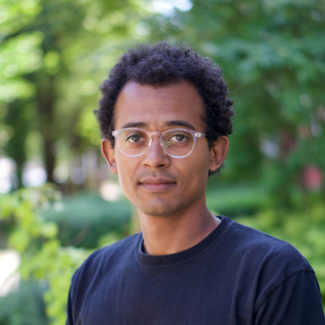Oppong
Nelson joined the lab in September 2022 as a Humboldt postdoctoral fellow. He obtained his Ph.D. from the Bloch group at LMU in Munich, where he worked on ultracold ytterbium quantum gases in optical lattices. For his thesis work, he explored how the clock state of ytterbium can be employed for the simulation of interesting multiorbital models from solid-state physics. Now, at JILA, Nelson is excited to explore how programmable interactions in Strontium tweezer arrays can be utilized for quantum-enhanced metrology in collaboration with the Ye group, and, how such systems can be used for probing Hubbard physics at the single-particle level.



 The Physics Frontiers Centers (PFC) program supports university-based centers and institutes where the collective efforts of a larger group of individuals can enable transformational advances in the most promising research areas. The program is designed to foster major breakthroughs at the intellectual frontiers of physics by providing needed resources such as combinations of talents, skills, disciplines, and/or specialized infrastructure, not usually available to individual investigators or small groups, in an environment in which the collective efforts of the larger group can be shown to be seminal to promoting significant progress in the science and the education of students. PFCs also include creative, substantive activities aimed at enhancing education, broadening participation of traditionally underrepresented groups, and outreach to the scientific community and general public.
The Physics Frontiers Centers (PFC) program supports university-based centers and institutes where the collective efforts of a larger group of individuals can enable transformational advances in the most promising research areas. The program is designed to foster major breakthroughs at the intellectual frontiers of physics by providing needed resources such as combinations of talents, skills, disciplines, and/or specialized infrastructure, not usually available to individual investigators or small groups, in an environment in which the collective efforts of the larger group can be shown to be seminal to promoting significant progress in the science and the education of students. PFCs also include creative, substantive activities aimed at enhancing education, broadening participation of traditionally underrepresented groups, and outreach to the scientific community and general public.